Quick Bite – Are AI Companies Over Investing?
In an interesting development, debt issued by the so-called hyperscalers – companies that are building vast data centres including Alphabet, Meta, Microsoft and Oracle – has sold off in recent weeks.
The spread, or premium in yield that investors demand to buy the debt over US Treasuries, has climbed to 0.78%, the highest level since April, and up from 0.5% in September, according to Bank of America.
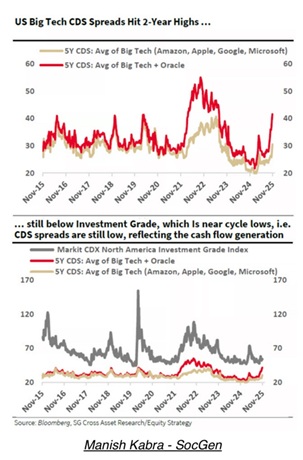
Source: Society Generale
The widening spread highlights that investors are increasingly concerned with the way tech groups are turning to debt markets to finance their investments in AI infrastructure.
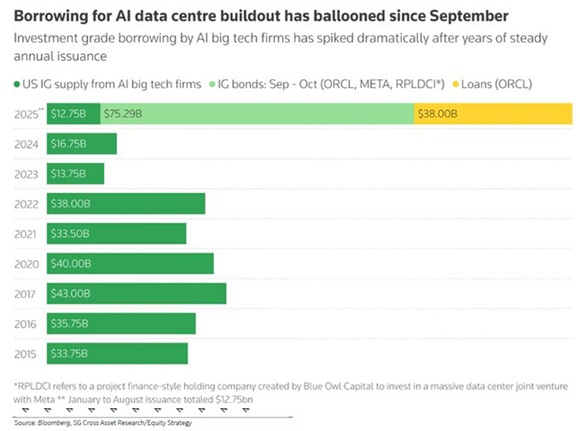
Source: Edge and Odds
JPMorgan has estimated that building AI infrastructure will cost more than $5tn and “will likely require participation from every public capital market as well as private credit, alternative capital providers and even government involvement”.
The mammoth scale of investment in AI infrastructure has raised concerns about overcapacity, long-term profitability and energy demands. Google, Amazon, Microsoft and Meta will spend more than $400bn on data centres in 2026, on top of more than $350bn this year. This is starting to create anxiety amongst equity investors, who fear that a return on the vast sums invested may not eventuate. The chart below showing Oracle’s share price and rising cost of debt reflects this.
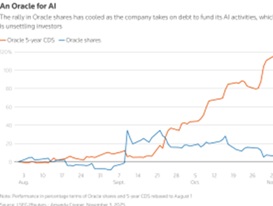
Source: Bloomberg
Tech giants are issuing debt at a quick rate to fund their AI expansion efforts despite having large cash balances, which analysts worry could signal a shift to higher levels of leverage. “The hyperscalers collectively hold $350bn in liquid cash and investments and are expected to generate $725bn of operating cash flow in 2026,” JPMorgan said. “Even so, substantial new debt supply is coming to the credit markets from these high-quality issuers.”
Investors are starting to ask, “Are they building too many data centres?” The data centres require connectivity, power, buildings, chips… all cost enormous amounts, and may have limited economic lives due to ever-changing tech innovations and advances.
This concern comes on top of mounting scepticism about the way in which the mega-cap tech companies are all so intertwined investing in each other, boosting revenues in an apparent round-robin effect.
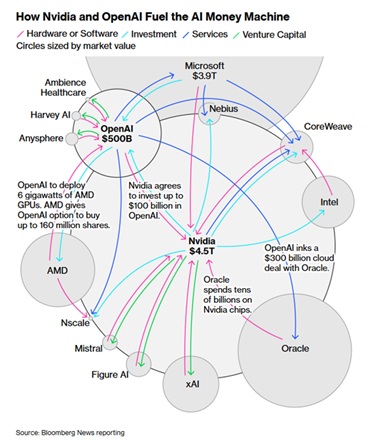
Source: Bloomberg
At the same time, the man in the street is starting to question the local impact on electricity prices. Local activists in the US have begun organizing against data centres that receive sizable tax breaks and require huge amounts of power. Concerns around increasing electric bills helped fuel Democratic victories last week in a blow to the Trump administration. “The point is not to stop the data centres but make sure the costs are borne by the gigantic companies that create them, and that electricity prices are checked,” was the message delivered on the political front.
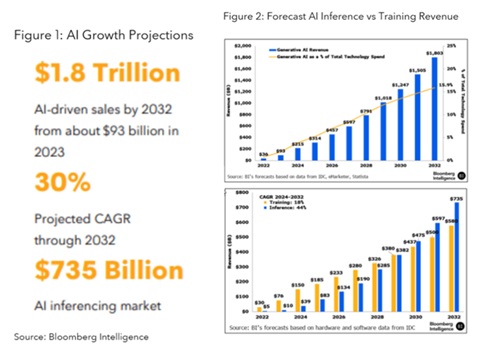
Source: Bloomberg








